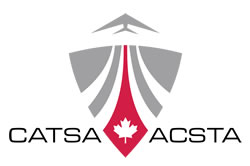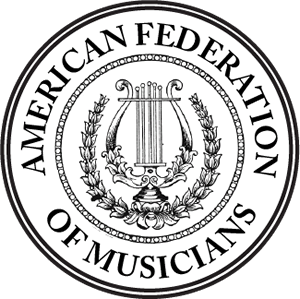Can I sub out of a steady or long-running gig?
In our theatre agreements, subbing is permitted as long as the proper notification protocols are followed. Under the General Theatre and Mirvish Agreements however, the right to sub may be withheld during previews and for the first 32 performances, where subbing is subject to the approval of the Musical Director.
For the Stratford Festival, the wording is more complex and you are advised to consult the Agreement or TMA staff.
For engagements that are not covered under a collective agreement where substitutes are permitted, our by-laws state:
“A member may provide a substitute (a) only with consent of the Leader, or (b) due to illness or extreme cause, or (c) when occupied with Board of Directors duty.”
From a local contractor: “if you have to sub out after I booked you for a gig, make sure I have as much notice as possible. It is OK to offer to help find someone to replace you, but do NOT tell me you have already lined up a sub. I get to decide who I want to hire and do not want to be put in a place where I have to call someone and tell them I do not want them.”
‘I play concert halls, clubs and churches and I often see recording equipment or video cameras.’ Should I be paid for these recordings or be consulted at the very least?
You should always be consulted and you are right to be concerned as it is a confusing area of our business that is in a state of change with the miniaturization of high quality recording gear. Step one is to make sure that there is a signed contract for the engagement, and that the recording has been contracted or authorized by the TMA or the AFM. The contract has built-in clauses that protect you from unauthorized use of a recording, or even an unauthorized recording.
There are two instances where a professional recording is permitted without payment for a live engagement. Both require prior written permission from the TMA or the AFM :
A. Limited recording for news promotion or current affairs programming, and publicity streaming restricted to the engager’s website.
B. Archival recording. If the recording is to be an archival recording, the Contractor or Leader must have the engager contact the TMA to issue an Archival Recording Application.
An exception is if you are working under a collective agreement that contains the right to make archival recordings, in which case most Agreements require the musicians to be notified. The Application requires the musicians’ majority approval by secret ballot vote and spells out the limitations on use of the recording. In the past, this authorization was often done verbally, which put the players in an awkward position (one vote prevented the recording). The secret ballot vote needs a majority approval to proceed with an archival recording.
You have been engaged and are contracted and paid to perform for a live service. The live engagement contract does not include the right to record, and the Leader/ Contractor should notify the engager of this.
What if the engager wants to make a CD to sell after the performance?
If the engager wants an audio recording to distribute or sell, in most cases the engager may contract the recording as a Limited Pressing Session, permitting production of up to 3000 units. Making a CD from a live recording is reasonably affordable. They do however have to pay the musicians an additional fee over and above the performance fee.
A New Use is a different situation (i.e. a commercial or soundtrack). As long as the original live and recording contracts are signed and filed, everyone is protected and paid. Even when discovered at a later date, the TMA often fights for this for our members and eventually gets them paid.
How can I tell if a pension fund contribution was made in my name after a gig?
The contractor or leader should be submitting payment to you with a breakdown of the fee paid, including any additional fees or deductions (doubling, cartage, work dues, HST if the player is registered and the pension contributed). Unfortunately there is not a standard that all contractors follow at this point; the TMA is currently working to clarify this.
You may also call the contractor or the TMA in which case you will need to know the date of the engagement and the leader or contractor.
Is a Pension contribution included in scale wages?
- Pension is not included in scale wages; it is calculated on top of scale wages and added to the bill paid by the engager.
- Pension varies depending on the type of engagement between 7.5 and 12% Check the TMA tariff or call the office.
How can I tell what the doubling rate should be for a gig?
First establish what contract you are working under. Doubling has different rates depending on if it is a miscellaneous gig, a theatre contract, or a recording etc. Contractors should tell you what contract you are being hired under. Once you know that, you can download the Tariff of Fees from the members’ area of the TMA website, or ask the office.
Are there minimum calls for rehearsals?
“A choir called and just wants a one hour rehearsal… is a short sound check considered a rehearsal? Sometimes a one hour sound check is rolled into a concert call when the concert is short… Is that permitted?”
- Minimum call for a rehearsal is 2 hours and amount is based on the type of gig and location (see tariff).
- Minimum call for a show is 3 hours and is also based on the type of gig and location.
A lot of concerts however, run around 2 hours. So for example, you could be called for a 45 minute sound check at say 6:45 until 7:30, then you might be off until 8pm concert time and the show ends before 9:45. This gets you in and out in 3 hours or less, in which case no additional rehearsal fee would apply.
‘I did a concert where the contractor sent download links to the players for their individual parts for the engagement. It was nice to get the charts in advance, but not so nice when I was told to print the 40 pages myself and tape the parts as no music would be provided at the gig.’ Is this allowed and how should I handle this situation in the future?
Leaders are required to provide music at or before the event. If you are asked to download and print your own parts for a show and feel it is unwarranted or exploitive, call the office anonymously and we will make sure the situation is addressed.
Some players may not mind this additional responsibility and you are not forbidden from printing or preparing your own parts. There are common sense exceptions – for instance sometimes the leader is not in the city until the first rehearsal or the gig itself; players appreciate getting the music in advance and the internet provides a dependable way of getting parts to the orchestra or even audio files. You should never be asked to create your part from a score unless you are a copyist and are being paid for this service.
When I recently joined the TMA, I attended the special initiation and informational meeting with the Senior Business Rep. I provided the TMA with my name, address, telephone and email contacts, along with HST and Social Insurance Number. Is that information safe? Am I required to provide all of that info? Do I have to provide my SIN every time a leader asks for it as there seems to be some question as to whether this is safe?
You are obliged to provide a Social Insurance Number (SIN) when working under our contracts for the purposes of income tax and pension. We are working on a solution as part of the TMA contractors and musicians guide to best practices.
In the meantime, use common sense when handling SIN and personal data. Some people are uncomfortable with emailing their SIN while others have no issue with it. There is always the telephone and a hushed voice.
‘I just got called for a gig and the leader said she is paying scale.’ Does that mean she has filed a contract?
Paying scale does not in itself mean that a contract is being filed. We must now state that scale is the minimum you can be paid and is the figure that pension is paid on, and work dues are deducted from. Remember that if a contract is being filed there should be a pension contribution made on your behalf, it does not come to you directly. Your cheque may also be lower by 3% (of scale) if work dues are being deducted and paid on your behalf by the leader, which is usually the case.
BTW, many of our members always ask for and receive above scale wages.






